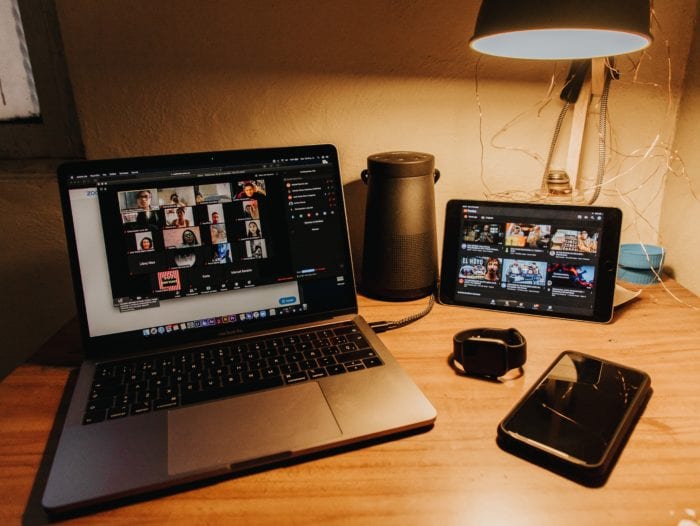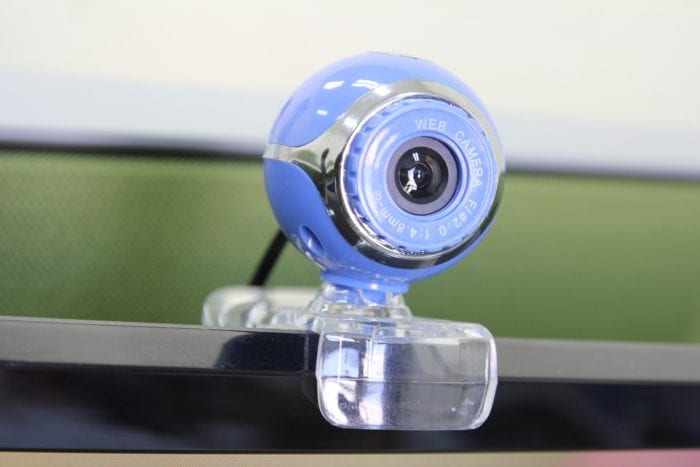Since the Covid-19 pandemic outbreak began, our world has changed entirely. From the work-from-home movement, to the crash of the stock market, business operations have taken on an entirely new look. Regular doctor visits are now completed by way of telehealth conference calls, and business staff meetings are being held in living rooms across the nation via teleconferencing.
What is Zoom?
With this sudden surge in video conferencing, one name has become a household word - Zoom. The Zoom platform has become a name synonymous with video and audio conferencing, webinars, and chats. This suddenly popular teleconferencing app has grown from experiencing 10 million users in December to 200 million in March.
The jump in users is not a huge shock for this video conferencing giant. The stay-at-home mandates and the number of Americans told to work remotely, have made this inexpensive app an easy choice for connecting with family, friends, and coworkers. Unfortunately, sometimes you get what you pay for.
Security Flaws Linked To Zoom
The recent massive spike in users of the Zoom app has brought some major security flaws into the spotlight. Users should be fully aware of these before downloading the app, using the program, and discussing sensitive data while on a Zoom call.
Currently there are several lawsuits against the video-call company in California. Investigations in a number of states, including New York, that have uncovered some shady security practices that could put you and your secure data at risk.
Privacy Issues
Top on the list of security flaws includes the issue of customer privacy while using the app and when the program has been downloaded to your work or personal devices. Last week Motherboard reported that Zoom's iOS app was sending analytics to Facebook without disclosing it explicitly in its privacy policy. In addition to this issue, the Zoom bug in Mac iOS could be used to exploit and take control of your Mac. Any sensitive information such as email addresses, photos, and conference data you have stored or access to then becomes vulnerable to infiltration.
When on a conference call for work you may be discussing client data or sensitive information. The Zoom calls are not necessarily end-to-end encrypted, which is the most private form of internet communication, protecting conversations from outside parties.
The privacy flaws don’t stop there, sadly. Zoom bombing has become another issue common to Zoom teleconferences. A Zoom bomb is when a troll is able to drop into your call and share graphic or upsetting images. There has been a major uptick in these types of hacking incidents with several arrests having been made where a hacker has displayed pornographic images to elementary Zoom classes or disturbing images during business meetings.
On a national intelligence level there are concerns regarding use of this program. Foreign intelligence operatives are reportedly using online platforms and video-conferencing apps like Zoom to spy on Americans, bringing the issue from the business level to the international stage.
Zoom Backlash
These security flaws have prompted some organizations, companies, governments, government agencies, and schools to ban Zoom or restrict its use. Some major companies and even entire countries have banned the use of Zoom.
For example, Google has banned Zoom from company-owned computers. Google employees have been directed to use Duo instead. SpaceX has forbidden employees from using Zoom, citing security and privacy concerns. The United States Senate has urged its members to choose platforms other than Zoom due to security concerns, but has not issued an outright ban. The German Foreign Ministry has restricted Zoom use to personal computers in emergency situations only, as reported by Reuters. Taiwan has banned Zoom for use by all government agencies. And NASA has banned all employees from using Zoom.
Alternatives to Zoom
Give the depth and seriousness of the security issues surrounding Zoom teleconferencing, it is important to note that Zoom is not the only option when trying to connect with family, friends, and coworkers. Our recommendations would be to utilize Google Meet aka Hangouts, Skype for Business, or GoToMeeting. These are HIPAA compliant solutions and have a great record of maintaining a higher level of security and privacy standards.


